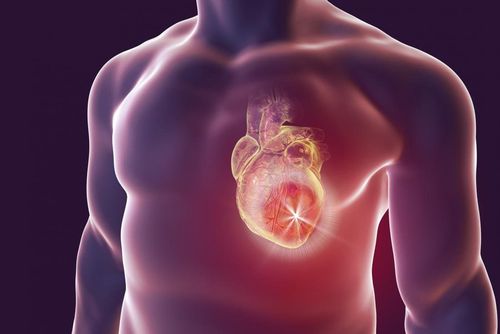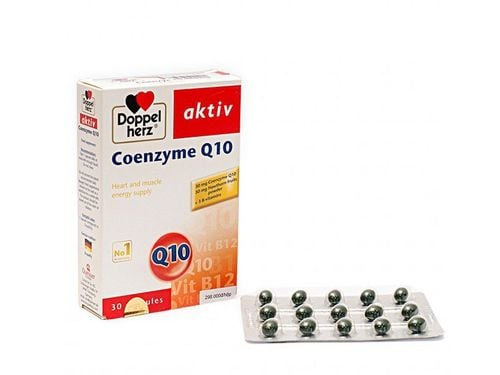This is an automatically translated article.
The article was professionally consulted by Specialist Doctor II Nguyen Quoc Viet - Department of Medical Examination & Internal Medicine - Vinmec Danang International General Hospital. The doctor has more than 20 years of experience in the examination and treatment of cardiovascular diseases and Interventional Cardiology.Silent ischemia is a dangerous disease because the disease progresses silently, increasing the risk of death from myocardial infarction. Therefore, early detection and treatment of ischemic heart disease will help reduce the risk of unpredictable complications of the disease.
1. What is silent myocardial ischemia?
Silent myocardial ischemia (silent myocardial ischemia) is a condition in which the heart muscle is not supplied with an adequate supply of oxygen-rich blood but does not have the typical symptoms of angina or equivalent symptoms such as dyspnea. Breathing, sweating, nausea,... An ischemic heart attack occurs when a coronary artery spasm, narrows, or ruptures atherosclerotic plaque, causing a blood clot to appear that disrupts blood flow. through the coronary artery.People with silent ischemia often have a higher pain tolerance and better tolerance to painful stimuli than the general population. It is also possible that because the patient is elderly, many comorbidities (such as diabetes mellitus with neurologic complications) may cause pain variation, making it difficult for patients to recognize and seek medical attention. Therefore, patients often find it difficult to detect the disease at an early stage for timely and effective treatment.
Myocardial ischemia can lead to arrhythmia, myocardial infarction and heart failure, easily fatal. Silent myocardial ischemia is more dangerous than symptomatic ischemia because the disease is difficult to detect. This is also the reason why the risk of death in people with silent ischemia is three times higher than in people with normal ischemia. In case the patient is lucky to survive, it can also leave many serious sequelae, severely affecting the quality of life later on.
2. Subjects prone to silent myocardial ischemia
Subjects at high risk of silent myocardial ischemia include:Patients with chronic stable angina and those with a history of unstable disease; Severe coronary artery disease: Atherosclerosis, calcification, rupture or sudden spasm; Having diabetes: When blood sugar is high, damaged nerves make the warning signs of myocardial ischemia become more faint, making it difficult for patients to detect early; Elder; People with high pain threshold; Frequent smoking, little exercise, overweight; Premenopausal women; Chronic hypertension; Have a history of myocardial infarction; People who have had coronary artery surgery.

3. Signs of silent myocardial ischemia
Silent ischemic heart disease is easily recognized on an electrocardiogram or echocardiogram. However, it is difficult for patients to realize that they have the disease because the disease has no typical symptoms, such as angina attacks. However, the disease still has some faint warning signs that patients need to pay special attention to such as:The body suddenly becomes weak, tired, sluggish, exhausted; There is a feeling of discomfort in the chest, the chest feels like a weight is pressing on it for several minutes, which may disappear completely or recur several times; Discomfort in upper body areas: Pain in one or both arms, back, jaw or neck pain; Shortness of breath; Heartburn, indigestion, sad to have a bowel movement but can't go; Nausea, dizziness, lightheadedness, cold sweat in the head - neck area. When noticing any of the above symptoms, the patient should go to the hospital for an early check-up so that they can detect the disease in time if unfortunately have the disease and have early intervention and treatment measures.
4. Diagnosis of silent myocardial ischemia
Make a diagnosis of silent myocardial ischemia by one of the following methods as prescribed by your doctor:Mobile ECG; Computed tomography coronary artery disease; Stress electrocardiogram; Cardiac perfusion scan; Stress echocardiography ; Ambulatory ECG monitoring.
5. Treatment of silent myocardial ischemia
All patients with silent myocardial ischemia with a history of cardiovascular disease should receive appropriate secondary prevention: Antiplatelet with Aspirin, control of hypertension and diabetes if present,...; Lifestyle changes: Stop smoking, adopt a special diet, increase exercise and lose weight if overweight or obese; Use beta-blockers, calcium channel blockers, nitrates,... or a combination of these drugs as prescribed by your doctor; Coronary reperfusion in some special cases as prescribed by the doctor.6. Measures to prevent complications of silent myocardial ischemia
To reduce the risk of complications due to ischemic heart disease, patients need to absolutely follow the doctor's instructions, combine with lifestyle adjustments in a scientific and healthy direction. Some important notes include:Adhere to the treatment prescribed by the doctor: The patient must take all the drugs prescribed by the doctor correctly and regularly and periodically check their health to monitor the progress of the disease; Maintain a healthy diet: Avoid eating fat, skin, animal organs, red meat (pork, beef, goat), egg yolk, fast food, packaged food, sweets,... Instead In addition, it is recommended to increase the intake of whole grains, vegetables, tubers, fresh fruits, fish, poultry, vegetable protein, etc. Besides, patients with myocardial ischemia should eat light foods and limit foods. a lot of salt such as pickled cucumbers, canned fish, canned meat, ... and avoid tobacco smoke, limit drinking alcohol, coffee,...; Strengthening exercise: Regular exercise helps increase blood circulation, developing new blood vessels to nourish heart muscle cells. Patients with ischemic heart disease should walk 30-60 minutes/day, at first gently, then gradually increase the speed and distance. If you have mild myocardial ischemia, you can choose sports that require more strength such as swimming, cycling, badminton, table tennis, etc.

Vinmec International General Hospital now has a Cardiovascular Screening Package - Cardiovascular Basic Examination, which helps customers detect basic cardiovascular diseases early, thereby having a timely treatment plan. Subjects using the examination package do not discriminate against age and gender.
Why should you choose Cardiovascular Screening Package at Vinmec International General Hospital?
Simple and quick procedure. Enthusiastic advice and support, reasonable and convenient examination process. Comprehensive facilities, including a system of clinics and consultations, blood collection rooms, dining rooms, waiting areas for customers... Professional, caring way of working.
Please dial HOTLINE for more information or register for an appointment HERE. Download MyVinmec app to make appointments faster and to manage your bookings easily.














